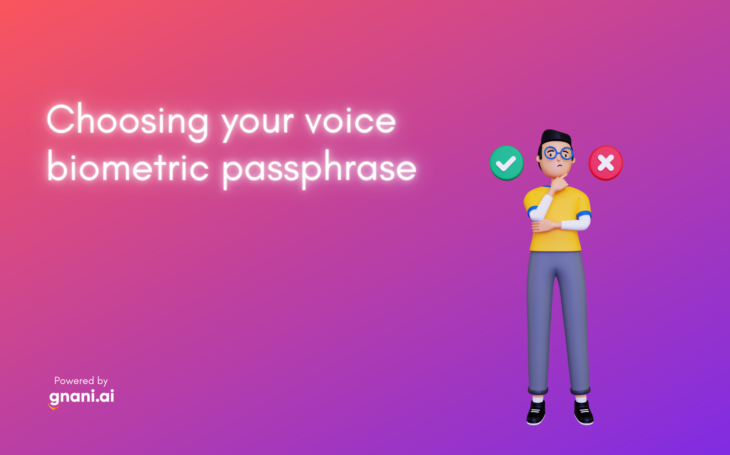
When it comes to voice biometrics, the passphrase you choose is just as important as the fingerprint or iris scan you use to unlock your device. While a passphrase can be anything you want, there are certain characteristics that make a good passphrase. In this article, we’ll go over what makes a strong passphrase and how you can choose one that’s right for you.
A passcode could be anything from a song to sentences containing alphanumeric contents. As authentication technology gets more and more accurate, it can differentiate your voiceprint from others
How to Choose a Strong Passphrase:
- A strong passphrase can’t be guessed easily: A passphrase that is easy to remember is also likely to be easy to guess. Avoid using easily guessed words like your name, address, or birth date.
- A good passphrase is long: The longer your passphrase, the more difficult it will be to crack. We recommend a minimum of eight characters, but longer is always better.
- It should be alphanumeric: Using a mix of different characters makes your passphrase more difficult to crack.
- A strong passphrase is unique to you: Don’t use a passphrase that you’ve used for other accounts or that could be easily associated with you. If someone knows enough about you, they may be able to guess your passphrase.
- A strong passphrase is not reused: Once you’ve used a passphrase, don’t use it again. This includes using the same passphrase for different accounts or websites. If one account is compromised, all of your accounts are at risk if you’re using the same passphrase.
What you should focus on when choosing voice passcodes?
When choosing a voice biometrics passphrase, there are a few things you should keep in mind: length, complexity, and uniqueness. Let’s go over each one in more detail.
- Length: The longer your passphrase, the more difficult it will be to guess. We recommend using a minimum of 8 characters, but 12 or more is even better.
- Complexity: A complex passphrase is one that includes a mix of upper and lowercase letters, numbers, and symbols. The more character types you include, the stronger your passphrase will be.
- Uniqueness: A strong passphrase is one that’s not easily guessed by someone who knows you. That means avoiding personal information like birthdays, anniversaries, or pet names. It’s also important to avoid common words and phrases that can be found in the dictionary.
Once you’ve chosen a strong passphrase, make sure to keep it safe. Never write it down or store it on your device. And if you ever suspect your passphrase has been compromised, change it immediately.
Want some examples for passphrase ideas? Here are a few examples of a good voice passphrase:
- “My dog’s username is Maximus3452.”
- “I might have been born in 1992 at 3.55 am.”
- “I love to travel 55 minutes every 3 days.”
- “A quick little fox might have jumped over the sleepy dog 13 minutes back”
Bad examples of a voice passphrase:
- “password”
- “123456”
- “my name is john smith”
When choosing a voice biometrics passphrase, it’s important to consider length, complexity, and uniqueness. A strong passphrase is one that is difficult to guess and includes a mix of different character types. Additionally, you should never reuse a passphrase for different accounts or websites. By following these guidelines, you can choose a strong passphrase that will help keep your voice biometrics secure. Moreover, a strong authentication process will in itself include rotating passphrases that will be given to you each time you try to access your data.
Have you ever used voice biometrics? What was your experience? Let us know in the comments below.




